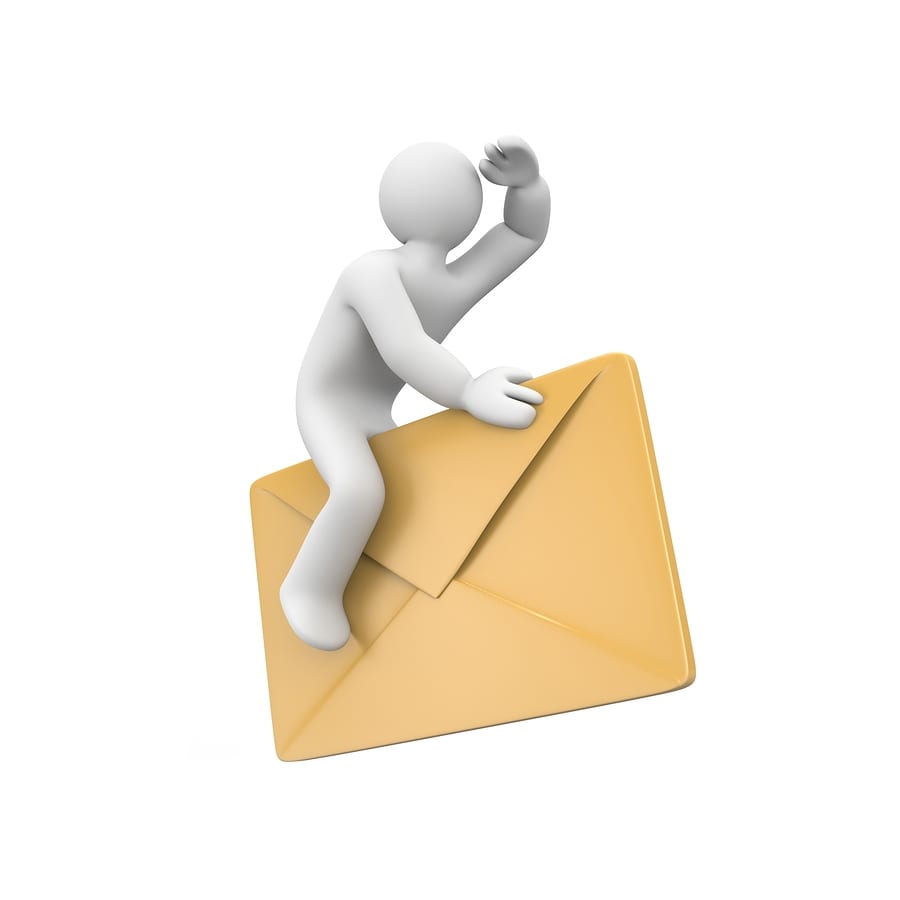Why an Email Marketing Strategy Just Became Cool Again

Some things just aren’t cool.
Upturned collars, for example. Scrunchies. Any clothing item with rhinestones on it. We can all agree that those are best left to the dredges of History. Other things, however, are having a comeback, despite the fact people thought they were gone forever just a few years ago.
One such thing is the email marketing strategy.
Today, email is an essential platform for any marketer that wants to make a difference. Not only are people tied to their smartphones at all times (which means they’re also bound to their email inboxes) but email has become one of the fastest and most expedient ways to communicate with the world.
If you got rid of your email marketing strategy because you thought email marketing was dead, or you never had an email strategy to begin with, this post is for you. While scrunchies might not make a comeback, email marketing has, and a plan for addressing it is more critical now than ever.
Here’s what you need to know.
Email (By the Numbers)
Want to gauge how important email is to your customers? All you need to do is think about how often you use it in your personal life. According to recent research, most people check their email inbox about 15 times each day.
And that makes sense, considering that email users send about 281 billion emails daily, and there are currently over 3.7 billion email users around the globe.
While email doesn’t get the same coverage as flashier forms of marketing, such as such as inbound and social media, it remains an essential platform, and you can only ignore it at your own peril.
3 Reasons You Need an Email Marketing Strategy
Not sure why you need an email marketing strategy? Here are three compelling reasons to convince you.
1. An Email Marketing Strategy Provides Direction
The direction of your email marketing is only as good as the direction of your email marketing strategy.
Without a defined strategy, it’s difficult to tell where your business is heading and whether your email efforts are supporting those objectives. This will never be a successful strategy and, more likely, will only waste your marketing budget.
When you take the time to define an email marketing strategy, on the other hand, you establish a plan to achieve your goals and objectives. Your strategy will help you define which emails you send, to whom, and when. Once you have that information, you can check it against your other metrics and objectives to ensure you’re on track.
2. Better Marketing Tactics
Say you want to run a marathon.
You’ve never done one before. You hear that some people train for them, but you decide to take a different approach. Instead of creating a staggered running or cross-training plan, you run a few times, swim a few laps in a pool, take a couple of hikes, and line up at the start line with the other racers.
Unsurprisingly, it doesn’t go well.
The same is true for email marketing. Training, in the above example, is a tactic. You’re not going to win the marathon without a good tactic, and you’re not going to succeed at email marketing without a good tactic. Unfortunately, it’s impossible to develop a comprehensive marketing tactic without a good email marketing strategy.
Putting together an email plan allows you to establish long-term tactics that will help you meet your goals. Whether this involves creating more content, bringing in industry experts, or setting up a landing page for a new offer, your email marketing strategy is the perfect place to organize it all.
3. Data & Insights
If it can be measured, it can be managed.
One of the significant perks of an email marketing strategy is that it gives you the data you need to track the progress of your email efforts. Without a strategy, you don’t have much insight into what’s working and what’s not.
With a strategy, however, you have access to in-depth, detailed information that can help you figure out whether you need to segment your list, work on your headings (customers are 22% more likely to open emails with personalized subject lines), or include different calls-to-action in your emails.
3 Tools of the Trade
Now that you understand why you need an email marketing strategy let’s talk about the tools you can use to support the strategy you eventually build.
Here are a few of our favorites.
1. Constant Contact
Constant Contact is an email marketing tool that is easy to use and offers extensive help options.
Offering functionalities ranging from permission-based email list two simple Integrations and professional templates, Constant Contact is one of the first places you should look if you are an email marketing newbie.
Bonus points? ReadyCloud’s Constant Contact CRM software integration helps you tap into the customer journey with detailed reporting. It gives you the ability to filter out serial returners while spotlighting your most popular products to your most loyal shoppers, and in just a few simple clicks.
2. MailChimp
MailChimp, like Constant Contact, is an email marketing tool that offers dozens of beneficial features.
In addition to offering subscriber activity reports, MailChimp integrates with Google Analytics, allows you to compare your campaigns, and plugs directly into other apps you might use, like SurveyMonkey, Instagram, HootSuite, Facebook, and Twitter.
Just the like the aforementioned email service, ReadyCloud also has a MailChimp CRM software integration that offers amazing functionality to help you boost your bottom line.
3. The Hemingway App
It’s okay to not actually be Hemingway, as long as you use the Hemingway App. Designed to save you from embarrassing writing mistakes, Hemingway checks the spelling, grammar, and punctuation in your written materials.
Everything Old is New Again
Like high-waisted jeans, email marketing is back with a vengeance. If you’ve neglected your email marketing over the past several years, or you never had much of an email marketing strategy to start with, now is the time to create one. In addition to being effective, email marketing is personal, easy, and highly compelling for users.
Luckily, email marketing tools have come a long way, and it’s easy to find apps that integrate with your CRM and make it easier than ever to manage, monitor and improve your email marketing.
Share On:








